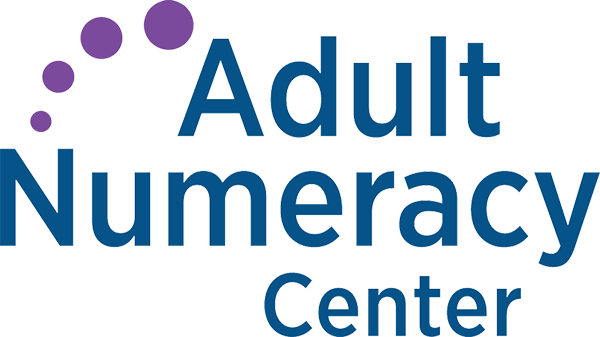Offerings focused on instructional strategies give practitioners the opportunity to examine patterns of mathematical thinking and learning, and apply this knowledge to their practice.
Online PD

During this series, you will consider ways to engage students in each of the mathematical practices. The challenge of working through problems in the assignments will encourage you to consider the perspectives of both the learner and the teacher, forming the basis for a rich group discussion on strategy and practices. This series is composed of two online assignments (to be completed independently) and two live online workshops.
Format: facilitated online workshop series
Most adult education programs have English learners (ELs) in their adult basic education (ABE) courses. These ELs, like their native-English speaking classmates, are often working toward their HiSET or other education and career goals. This online course is designed help adult education instructors teach math to EL learners more effectively and in a culturally respectful manner. The strategies and ideas presented in this course are appropriate for adult ESOL instructors as well as ABE instructors who only have native English-speaking students in class. This asynchronous, self-paced online course consists of five learning modules and a short assessment.
Format: self-paced online course
Estimation is more than just ‘rounding numbers’! We use estimation more than we realize when making calculations and decisions in our daily life and at work. Explicitly teaching students to compute mentally and approximate answers develops their number sense and their confidence in using math. In this online workshop, we will discuss different types of estimation (numerosity, measurement, and computation estimation) and how to integrate them in your instruction to help students develop number sense.
Format: facilitated online workshop
In this workshop you will engage in truncated versions of two problems as learners—one from the Mathematics Assessment Project (MAP) and another from Dan Meyer’s Three-Act Math Tasks. You will consider the continuum of Problem-Based Learning which begins with clear, packaged problems and reaches to big, messy, real-world problems, differing from other instruction. Together we will look at resources so you can find what you need to support your students’ learning.
Format: facilitated online workshop
Does discussion belong in math class? Yes! Talking about math leads to deeper understanding for both teachers and students. Through class discussions, teachers can gauge what their students know, and this information provides a foundation on which they can build future math instruction. Discussion helps students strengthen skills like constructing arguments and critiquing the reasoning of others—habits of mathematically proficient learners—which enables students to understand math content more deeply.
In this workshop, we will use sample classroom dialogue to identify expectations that we communicate to students. We will consider how a safe environment and valuing students as learners influences the depth of conversation in the classroom. With a partner, you will practice focusing on student thinking, asking open questions, capitalizing on student curiosity, and finding what’s right in students’ thinking in order to build mathematical understanding from their ideas.
Format: facilitated online workshop
Classes with unpredictable attendance are the norm in adult ed, and some settings are more of a challenge for teachers than others. For example, many classes have open enrollment, and most students are not required to attend class. Students with a wide variety of experience—testing at different levels—are often in one class. Some classes, such as those in correctional settings, regularly have students for only a short duration because of their unique circumstances.
In this 1.5-hour workshop, we will share ideas for addressing the challenge of irregular attendance. These ideas were collected from actual teachers who have experience serving students who attend classes for a short duration or where attendance is unpredictable. During our time together, we’ll also collect your thoughts, reactions, and ideas and share resources for support.
Format: facilitated online workshop
This two-part online workshop series introduces the three instructional shifts—focus, coherence, and rigor—described in the CCRSAE for Math. Facilitators will use concrete math examples to explain and illustrate each shift. You will have frequent opportunities to interact through polls and to contribute to the discussion using the chat feature. No prior knowledge of the instructional shifts or the CCRSAE is required.
Format: facilitated online workshop series
LD—Learning Differences, Difficulties, or Disabilities: Many of your students experience these terms firsthand, but no matter the case, it’s important that you don’t consider them a Deficit! In this online workshop, you will explore some of the strategies that you can use to help students access math ideas so they can be successful math users. These strategies can be adapted to any level and used with any math content area. This workshop is for anyone involved in adult numeracy instruction who wants ideas for helping students develop a strong core foundation without relying on mnemonics to try to remember procedures. You will look at research on learning disabilities as it relates to math, try out some strategies for themselves to add to their teaching toolkit, and watch a student illustrate the power of such strategies.
Format: facilitated online workshop
Formative assessment is the ongoing work of understanding how your students are understanding what you are teaching. While there are many ways to do formative assessment, one that is often readily accessible is looking at student work. There is a lot that can be learned by analyzing how students illustrate or describe their thinking—more than just a tally of what they got right or wrong. Formative assessment informs your instructional decisions so that your teaching can meet students where they are and help them move forward.
In this workshop, you will learn a frame for analyzing student work and practice using it with real examples of student work. You will also learn about content knowledge for teaching and how it differs from other kinds of math content knowledge. Although this workshop focuses on analyzing students’ math work, you can apply the techniques in ELA and ESOL assessment as well. You will leave with strategies for using student work to make instructional decisions and ideas about how to continue your professional learning.
Format: facilitated online workshop
In this 90-minute workshop, you will experience as learners the Mathematical Language Routines called Collect and Display, Co-Craft Questions, and Compare and Connect. These experiences will be the basis for teacher conversation about the language benefits and mathematical habits that students can learn during these routines as they learn math content. You will leave with the list of eight Mathematical Language Routines you can use in your own classroom.
Format: facilitated online workshop
What math can you do with a class of students from varying math backgrounds who have a wide range of test scores? Help your students develop reasoning and thinking habits; practice and build language skills; and build community by regularly using short numeracy activities in your instruction.
In this 75-minute workshop, you will work through two different types of numeracy routines yourself as a learner. By observing how the facilitator connects sample content to numeracy skills, you will learn instructional strategies you can use in your own classroom that can help you capitalize on students’ natural curiosities. Opportunities to connect material to adult numeracy can arise in any academic class!
Format: facilitated online workshop
Most remote math instruction includes both synchronous and asynchronous components. As you plan to teach a math unit remotely, what do you prioritize in your synchronous instruction? How do you make instructional decisions about the best use of different forms of remote instruction? This two-part online workshop will explore a framework for making instructional decisions when planning both synchronous and asynchronous remote math instruction. You will see examples of routines and activities from a remote math class and will have the opportunity to get support while planning out your next lesson or unit.
In the first workshop of this series, you will be introduced to a framework for planning synchronous instruction, using examples of math routines and activities from remote math classes at both beginner and intermediate levels. In the second workshop, we will discuss strategies for scaffolding asynchronous work, and discuss promising practices for using Google Classroom or other learning platforms. You will have the opportunities to sketch out some math lessons and to receive coaching from the facilitators.
Format: facilitated online workshop series
Many students struggle with word problems, even if they are competent at reading and calculating. What makes word problems so challenging? How can we help our students build the skills they need to be successful?
This two-part online workshop will break down different language, math, and cognitive skills involved when students tackle word problems. This can help you more accurately diagnose what individual gaps students have when they are struggling with word problems. This workshop will also help you plan your units to make sure you are intentionally addressing the variety of skills students need to be successful when working on them.
The strategies in this course can be used for students studying math at any level, but the examples focus on beginning math learners (GLE 2–4), who may require more intentional scaffolding and support.
During the trainings, you will experience and reflect on different word problem tasks, share teaching strategies that you already use, and see examples of materials and processes for teaching math vocabulary, grammar, problem types, and problem solving.
Format: facilitated online workshop series
This course is designed for adult education math instructors who are new to math instruction, as well as those who have been teaching math for a number of years. The instructional strategies and ideas presented in this course are appropriate for all levels of math classes, as well as native English-speaking and ESOL learners. The material is also designed to identify ways to make math instruction more equitable and culturally responsive for diverse student populations and communities.
This course takes about 8 hours to complete and is divided into six modules:
- Module 1: Self-Assessment with the Massachusetts Professional Standards for Teachers of Adult Education
- Module 2: Student Engagement
- Module 3: High Expectations and Meeting Diverse Needs
- Module 4: Student Ownership and Lifelong Learning
- Module 5: Reflect, Prioritize, Set Goals, and Draft a Plan
- Module 6: Course Closure
Format: Asynchronous online course
Standardized testing, whether it is for high school equivalency or measuring student gains, is a major concern in adult numeracy classes. It can be tempting to “teach to the test” in the hopes of getting students ready to get a passing score as quickly and painlessly as possible. However, making test preparation the main focus of instruction does not create lasting learning and often is not even effective in achieving passing scores or demonstrating gains. It is possible to teach conceptually and do explicit test preparation at the same time. When students get exposure to—and practice with—standardized test questions in a context that prioritizes conceptual understanding and flexible thinking, they will be more prepared to achieve test scores that fully reflect their skills and understandings.
In this workshop, you will be introduced to Test Talks, an instructional routine for building student confidence, understanding, flexibility, and familiarity with standardized test questions. You will experience Test Talks as a learner with a variety of multiple choice test-style questions on a range of topics.
Format: facilitated online workshop series

Blended PD
This course is designed to engage adult education professionals in reading and reflecting on research on adult numeracy. This research forms a solid basis from which to support effective math teaching and learning. By the end of the course, you will be able to discuss research on numeracy, math teaching, and learning; make personal connections between research and your practice; and recognize implications of research for instruction and student learning and for professional development. The course is composed of two self-paced online modules and one face-to-face meeting.
Format: facilitated blended course
To be successful in a math class, students need to feel that they are significant and that they belong. Teachers have the power to set a culture that fosters this. Classroom culture has a strong influence on student attendance, retention, motivation, learning, and ownership of learning. When students feel like they belong in the math classroom, they will have positive math learning experiences.
In this course, we will examine the elements of building a classroom culture in which students feel safe to challenge themselves and make progress as lifelong, independent learners. We’ll reflect on our own experiences as learners and as teachers. After reflection, participants will support each other by brainstorming strategies for our particular classroom culture challenges.
Format: One 1.5-hr online workshop + one 1.5-hr self-paced online module + one 1.5-hr online live community of practice meeting
Clear feedback on tasks helps students develop a growth mindset pathway that enables them to learn at higher levels. This blended course is part of a series on multi-level strategies for the math classroom for adult education instructors at all levels. It is designed to improve your ability to analyze and provide productive feedback on students’ work and make instructional decisions based on what students are generating in class. Together, we will look at both student videos and student written work, with a stronger emphasis on the latter. You are encouraged to share examples of student work from your own classes.
Format: online facilitated course

Face-to-face PD
This event is an opportunity to support you in developing instructional units as part of an overall ABE math curriculum. We will encourage you to use Wiggins & McTighe’s Understanding by Design (UbD) model to develop contextualized instructional units based on the CCRSAE. You are encouraged to attend with colleagues from your program (including teachers and directors) as part of a team.
Format: face-to face workshop
During this half-day, in-person workshop, teachers are invited to experience language rich numeracy activities and to become acquainted with ways to plan instruction for all learners. Significant session time will be devoted to considering language and other barriers to learning and designing universal solutions that help ALL learners reach the learning goal.
Format: face-to face workshop
In this 90-minute workshop you will experience, as learners, the Mathematical Language Routines called Information Gap and Stronger and Clearer Each Time. These experiences will be the basis for teacher conversation about the language benefits and mathematical habits that students can learn during these routines as they also learn math content. You will leave with the list of eight Mathematical Language Routines you can use in your own classroom.
Format: face-to face workshop
Open questions (ones with more than one mathematically correct answer) are a way to encourage students to think more deeply — a valuable tool for differentiation — and a way for the teacher to gain insight into students’ reasoning. This insight can be used as formative assessment (assessment that occurs during the teaching of a unit or a concept that allows the teacher to make responsive and adaptive instructional decisions). Formative assessment that allows teachers to make changes to instruction on a day-to-day basis has been shown to improve student outcomes.
In this course, you will see examples of open questions, learn how they can be used as a powerful tool for differentiation and formative assessment, and receive coaching as you prepare open questions for your own class. You will leave with a plan for facilitating at least one open question in an upcoming class or unit. You are encouraged to bring worksheets or other curriculum materials from a math unit you are currently teaching or often teach to prepare open questions for your class.
Format: face-to face workshop
One format for tackling the challenge of teaching math in a multi-level classroom is utilizing parallel tasks. Parallel tasks address the same math concept at different levels. This allows each student to choose a math task that is challenging for them, while enabling them to participate in whole- group discussions about the concepts being assessed.
In this course, you will learn the elements of parallel tasks and how to use them to differentiate math tasks and use them for formative assessments. You will also have an opportunity to create your own set of ready-to-use parallel tasks customized for your classroom. This course assumes an understanding of what differentiation implies, as well as an understanding of what formative assessment is and how it differs from summative assessment.
Format: face-to face workshop
